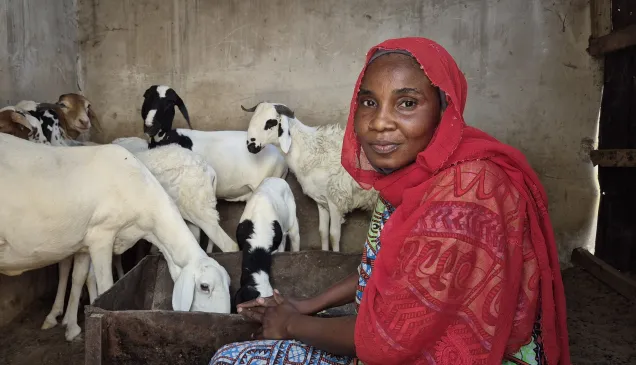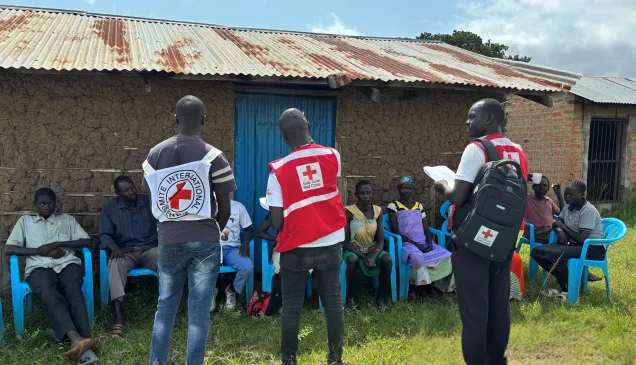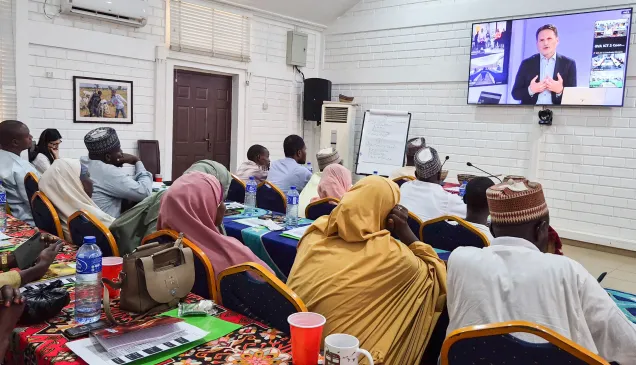Nigeria: ICRC helps Maiduguri Hospital treat victims of violence
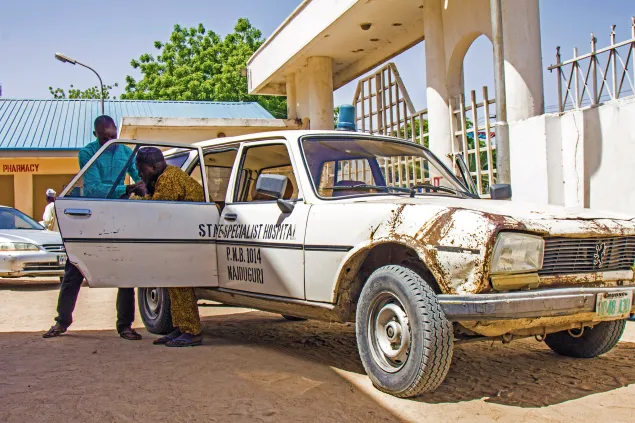
The ICRC is training Nigerian medical staff and providing hospitals with first-aid and surgical materials and equipment.
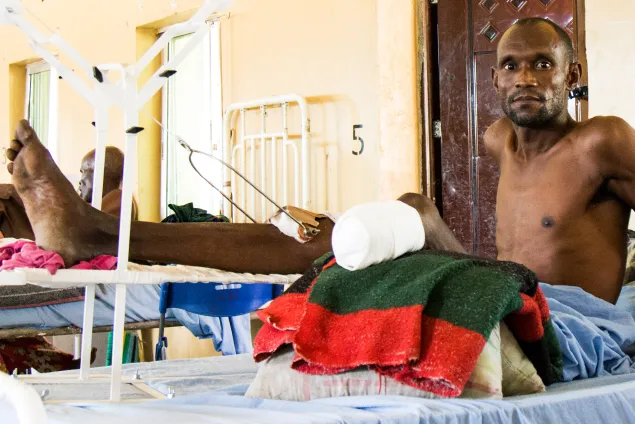
A man who has undergone the amputation of his left leg recovers in Maiduguri State Specialist Hospital.
The ICRC is providing medical supplies and giving surgical training to the hospital, to help staff treat both illnesses and wounds inflicted by bomb blasts and bullets.
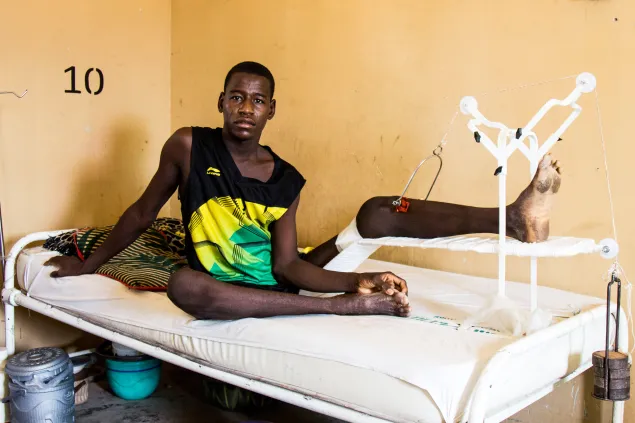
A man with his broken leg in traction. A grenade exploded in his shop after a child brought it in thinking it was a toy.
Thousands of people have sought refuge in Maiduguri following violence elsewhere in north-east Nigeria, many of them in need of medical or surgical care. The ICRC is supporting the hospital as it deals with this unaccustomed influx of patients.
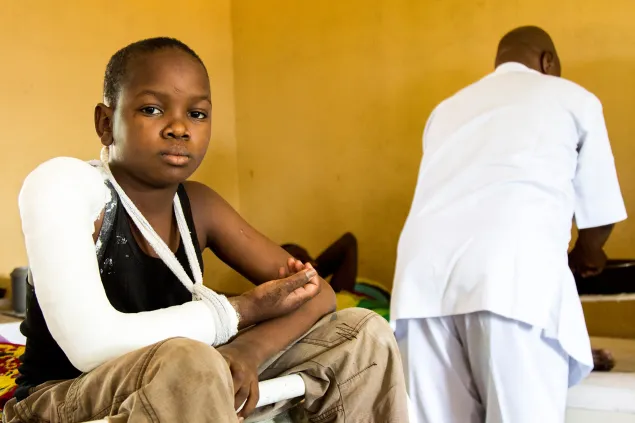
A boy with a broken arm. A bomb exploded in a market while he was out shopping with his mother.
The ICRC is making it possible for displaced people to receive treatment at the hospital in Maiduguri free of charge.
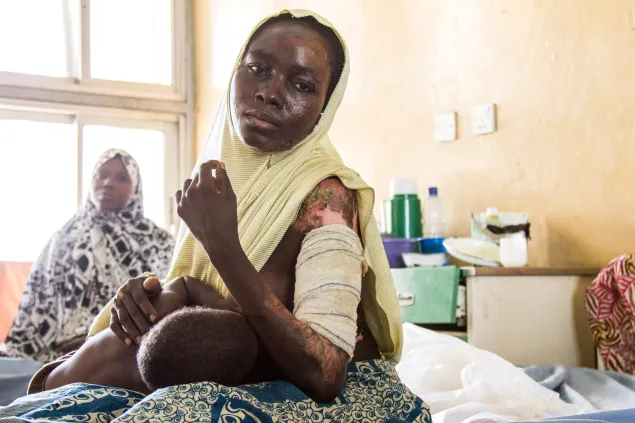
A woman with severe burns breastfeeds her baby at Maiduguri Hospital.
The situation of people displaced by the violence in north-east Nigeria, especially women and girls, is extremely difficult.
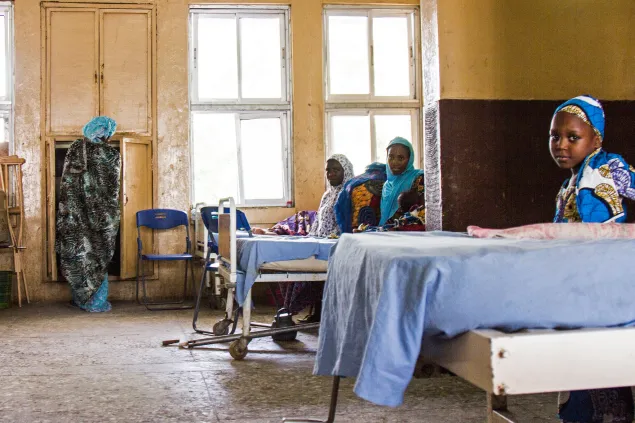
Patients at Maiduguri State Specialist Hospital.
Maiduguri is one of 15 health facilities that have received first-aid materials and medicines from the ICRC in recent months.
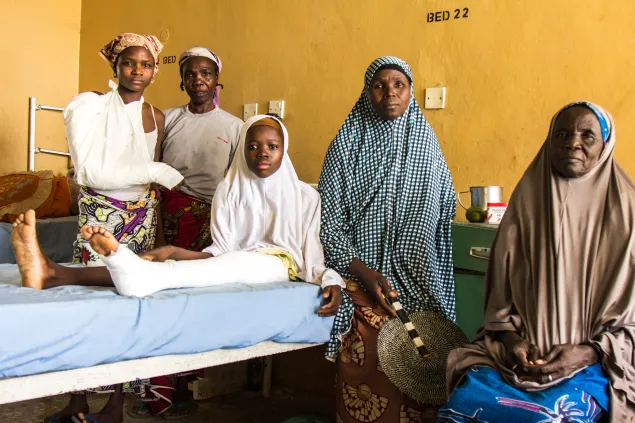
Two patients injured by violence in north-east Nigeria.
The ICRC has trained 40 Nigerian medical staff working in hospitals in the north-east to manage mass casualty situations and treat patients with weapon wounds.
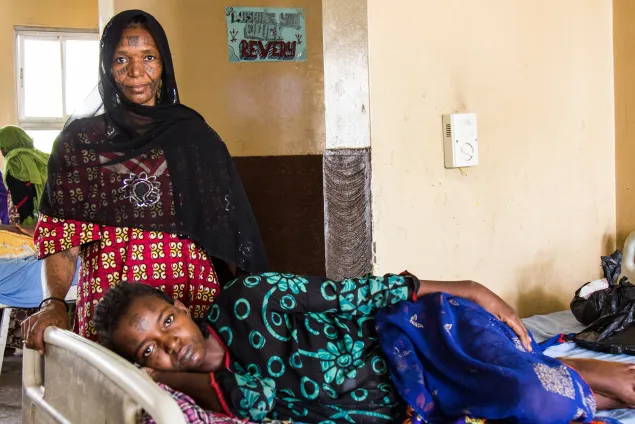
A mother watches over her sick daughter at Maiduguri Hospital.
The situation of people displaced by the violence in north-east Nigeria, especially women and girls, is extremely difficult.
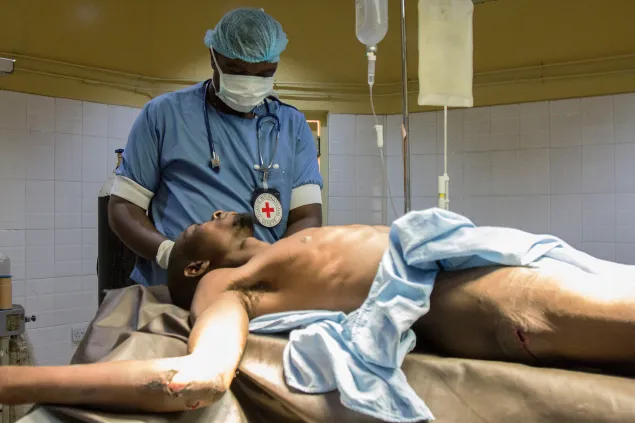
An ICRC anaesthetist looks after a man during an operation to treat weapon wounds at Maiduguri State Specialist Hospital.
Working in cooperation with the Ministry of Health, the ICRC is caring for IDPs and people wounded by weapons who need emergency surgery.
The ICRC is supporting health facilities in north-east Nigeria as they treat an influx of patients displaced from elsewhere in the region. Many have been injured by weapons or explosions.
ICRC support for health services in north-east Nigeria includes:
- Providing materials and equipment to hospitals when they receive an influx of casualties after an attack.
- Ensuring that IDPs can receive free emergency surgery at Maiduguri State Specialist Hospital.
- Supplying medicines, equipment and first-aid materials to 15 facilities in the north-east that are treating internally displaced persons and people injured by violence.
- Renovating health facilities, such as Mala Kachala primary health-care centre, which is now able to provide health care for 75,000 people in Borno state.
- Training Nigerian medical staff to manage mass casualty situations and treat patients with weapon wounds.
The pictures in this gallery show some of the work being done at Maiduguri State Specialist Hospital, one of the facilities treating people who have fled violence elsewhere in north-east Nigeria.

